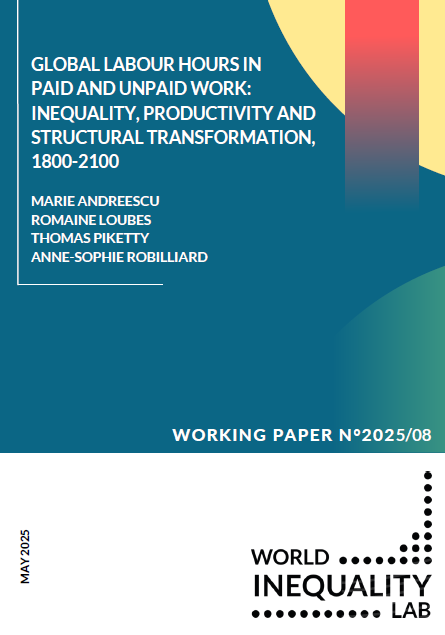
Thomas Piketty
@PikettyWIL
Followers
244K
Following
67
Media
321
Statuses
926
Compte officiel de Thomas Piketty, professeur @EHESS_fr & @PSEinfo, co-directeur https://t.co/lmi0pauKFs, https://t.co/MOOSh68Ieu, chroniqueur @lemondefr, https://t.co/1Gu8pDSB5f
Joined October 2015
This paper is the third in a series of research papers and technical notes that will form the backbone of the #GlobalJusticeProject, due to be released in June 2026. Find out more [10/10]
2
7
32
Children in Sub-Saharan Africa receive just 3% of the public education funding available to their peers in Europe and North America. 🧵A thread on a NEW STUDY written with @Nitin_K_Bharti, @amorygethin @mjenmana @ZhexunMO & Li Yang [1/10]. 🔗The study and a summary are available
6
112
259
📄 So far, 2 of 8 building blocks of the #GlobalJusticeProject have been published:. 1️⃣Global Labour Hours in Paid and Unpaid Work 2️⃣Unequal Exchange and North-South Relations
2
8
22
🗓️ #GlobalJusticeProject - Key dates:. 🔸Dec 2024 – May 2026: Release of working papers & technical notes. 🔸June 4–5, 2026: Launch of the Global Justice Report at the World Inequality Conference in Paris @PSEinfo . More details about the Conference:
1
3
9
The #GlobalJusticeProject is a new collective research initiative developed by the World Inequality Lab @WIL_inequality, and coordinated by Lucas Chancel, Cornelia Mohren, @Rowaida_Moshrif, Moritz Odersky, @anmol_smnch and myself—along with contributions from 30+ researchers and.
2
5
11
What would a just distribution of socio-economic and environmental resources look like at the global level from 2025 to 2100 – both between and within countries?. How can we ensure this vision fits within planetary boundaries?. From now to June 2026, the #GlobalJusticeProject
16
146
345
This study is the first in a series that will form the backbone of the #GlobalJusticeProject, due to be released in June 2026. More info🔗 [8/8]
2
6
35




















